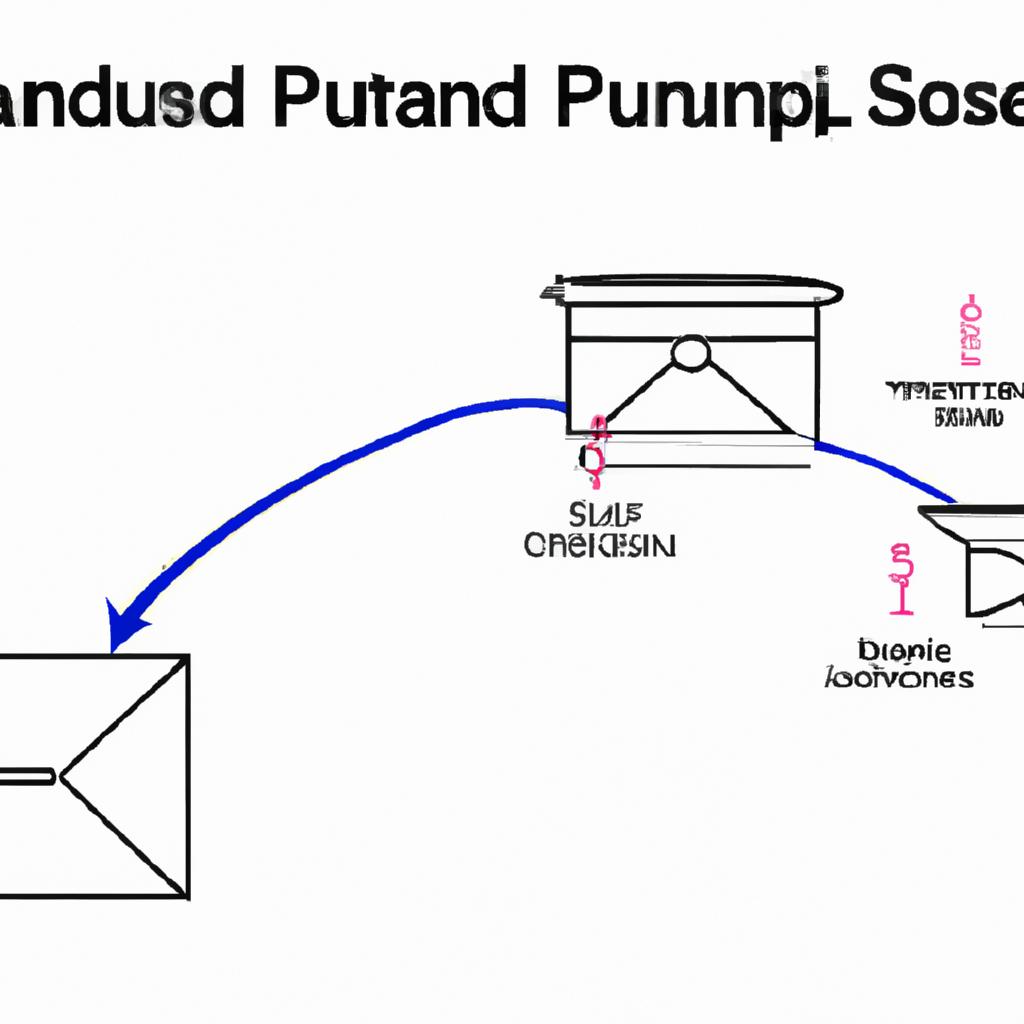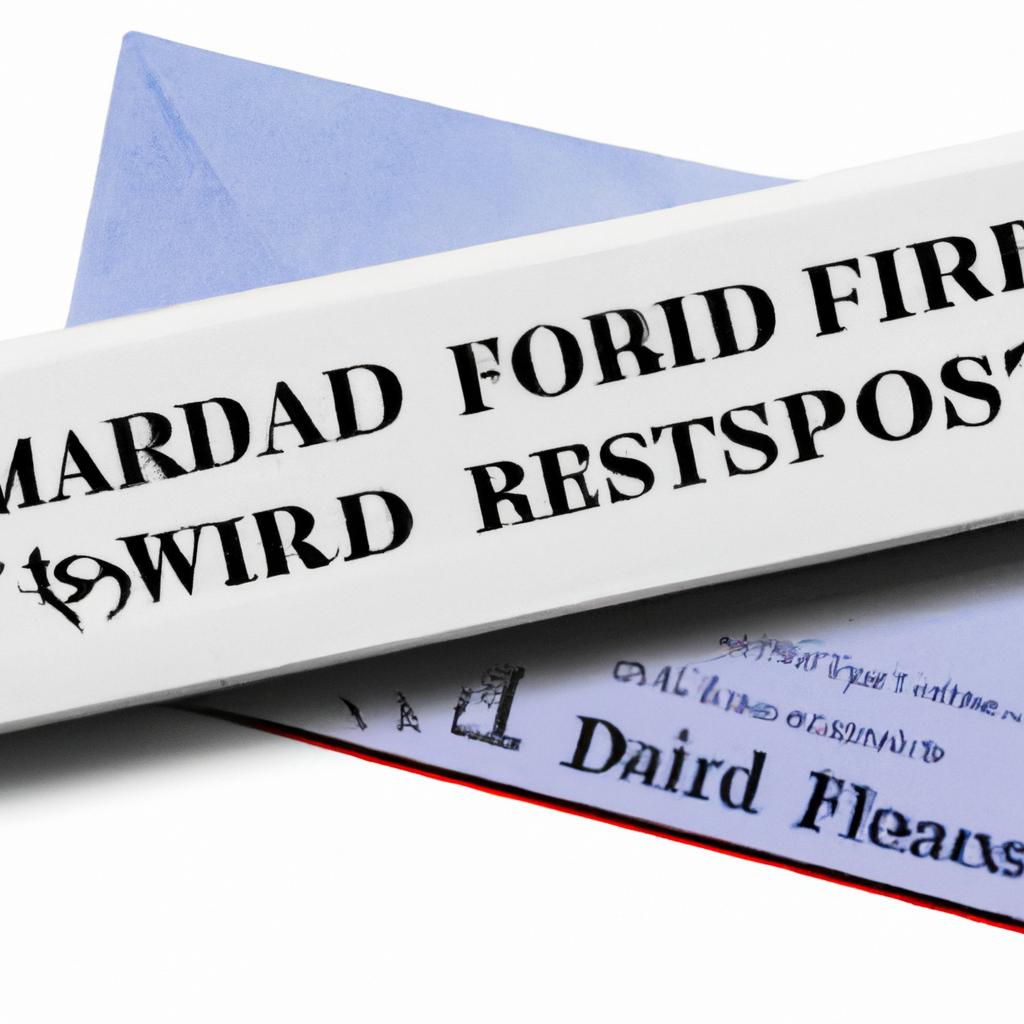In the intricate web of legal matters surrounding the passing of a loved one, ensuring that their mail is properly forwarded is a crucial task often overlooked. The United States Postal Service (USPS) offers a mail forwarding service specifically tailored for deceased individuals, yet navigating the complexities of this process can be overwhelming. At Morgan Legal Group in New York City, our team of experienced attorneys specializes in estate planning, probate, elder law, Wills, and trusts. In this article, we will delve into the intricacies of USPS mail forwarding for deceased individuals, providing clarity and guidance in this often-overlooked aspect of estate administration.
Understanding USPS Mail Forwarding for Deceased Individuals
When a loved one passes away, it is essential to handle their affairs with care and attention to detail. One important aspect to consider is the USPS mail forwarding service for deceased individuals. Understanding how this process works can help ensure that the deceased person’s mail is properly forwarded and managed.
**Here are some key points to keep in mind when dealing with USPS mail forwarding for deceased individuals:**
– Notify USPS of the individual’s passing as soon as possible.
- Provide the necessary documentation, such as a death certificate or proof of legal authority, to initiate the mail forwarding process.
– Consider forwarding the deceased person’s mail to a trusted individual or their estate’s executor.
– Regularly check the forwarded mail to ensure that important documents and information are not overlooked.

Navigating the Process of USPS Mail Forwarding After a Loved One’s Passing
When a loved one passes away, dealing with their affairs can be overwhelming. One important aspect to consider is the handling of their mail, especially if they were receiving important documents or communications. The USPS offers a mail forwarding service for deceased individuals, which can help ensure that their mail is redirected to the appropriate address.
Navigating the process of USPS mail forwarding for a deceased loved one involves several steps. First, you will need to fill out a Change of Address form on behalf of the deceased individual. This can be done online, at a local post office, or through the mail. You will need to provide proof of authority to act on behalf of the deceased, such as a death certificate or letter of testamentary. Once the form is submitted, the USPS will begin forwarding the deceased individual’s mail to the designated address. It is important to notify any senders of the change of address to ensure that important mail is received in a timely manner.

Recommendations for Managing USPS Mail Forwarding for a Deceased Estate
In order to manage USPS mail forwarding for a deceased estate, it is crucial to follow these recommendations:
<ul>
<li><b>Notify USPS:</b> Contact the United States Postal Service (USPS) to inform them of the deceased individual's passing. This will help prevent any mail from being delivered to the deceased's old address.</li>
<li><b>Submit Change of Address Form:</b> Fill out a Change of Address form with the USPS to forward any mail sent to the deceased's old address to the executor or administrator of the estate.</li>
</ul>
Additionally, it is important to:
<ul>
<li><b>Monitor Mail:</b> Keep a close eye on the forwarded mail to ensure that all important documents and correspondence are received in a timely manner.</li>
<li><b>Update Contact Information:</b> Provide the USPS with updated contact information for the estate's representative to ensure smooth communication and delivery of mail.</li>
</ul>

Ensuring Compliance with USPS Regulations for Mail Forwarding After Death
It is crucial to follow USPS regulations when forwarding mail after the passing of a loved one. Failure to comply with these regulations can lead to potential legal issues and complications. To ensure a smooth process, it is important to understand and adhere to the following guidelines:
- Notification: Inform the USPS of the individual’s passing to prevent mail from being delivered to their address.
- Forwarding Process: Submit a change of address form to forward mail to the designated recipient or address.
- Authorized Representative: Designate a trusted individual to handle mail forwarding on behalf of the deceased.
By following these regulations and guidelines, you can ensure that the USPS mail forwarding process is carried out efficiently and in compliance with legal requirements. It is important to consult with legal professionals, such as our team at Morgan Legal Group, to navigate through the complexities of estate planning and probate in such challenging times.
Q&A
Q: What happens to mail when someone passes away?
A: When someone dies, their postal mail continues to be delivered to their address unless there is a change in their mail forwarding status.
Q: Is there a way to forward mail for a deceased person?
A: Yes, the USPS offers mail forwarding services for deceased individuals. This allows their mail to be rerouted to a new address or held at the post office for pickup.
Q: How can I set up mail forwarding for a deceased loved one?
A: To set up mail forwarding for a deceased individual, you can visit the USPS website or go to your local post office to fill out a form and provide proof of the individual’s death and your relationship to them.
Q: Can I stop mail delivery to a deceased person’s address?
A: Yes, you can request to stop mail delivery to a deceased person’s address by contacting the USPS and providing the necessary documentation.
Q: What other steps should be taken regarding mail after someone dies?
A: In addition to setting up mail forwarding or stopping mail delivery, it is also important to notify any relevant parties, such as banks, insurance companies, and government agencies, of the individual’s passing to prevent identity theft and ensure that their accounts are properly handled.
Key Takeaways
As we navigate the difficult process of mourning the loss of a loved one, USPS mail forwarding for the deceased offers a small sense of relief in managing their affairs. By ensuring that important mail reaches the right hands, we can honor their memory and keep their legacy alive. Remember, in times of grief, even the smallest details can make a difference. Stay strong, stay connected, and may your loved one’s legacy continue to shine brightly in your heart.
 USPS Mail Forwarding for Deceased: A Guide for Handling Post-Passing Postal Services
USPS Mail Forwarding for Deceased: A Guide for Handling Post-Passing Postal Services
Losing a loved one is an incredibly difficult and emotional experience, and in the midst of processing grief and making funeral arrangements, practical matters like mail forwarding for the deceased may not be top of mind. However, handling post-passing postal services is an important task that should not be overlooked. Fortunately, the United States Postal Service (USPS) offers a service specifically designed to assist with this process – USPS mail forwarding for deceased.
In this article, we will dive into the details of USPS mail forwarding for the deceased – what it is, how it works, and how you can take advantage of this service. We will also discuss the benefits and practical tips for utilizing this service, as well as share some first-hand experiences and case studies to demonstrate its effectiveness.
Understanding USPS Mail Forwarding for Deceased
USPS mail forwarding for deceased is a service provided by the USPS to redirect mail addressed to a deceased person to a new address. This can be a temporary or permanent change of address, depending on the needs of the sender.
When a person passes away, their mail continues to be delivered to their last known address. This can cause inconvenience for family members or other persons who are responsible for managing the deceased’s affairs. USPS mail forwarding for deceased is designed to make this process easier by automatically forwarding mail to the designated address.
How it Works
The process for setting up USPS mail forwarding for deceased is fairly simple. Once you have the necessary documentation (which we will discuss in the next section), you can visit your local post office or go to the USPS website to start the process.
You will need to fill out a form (PS Form 3575) and provide proof of your relationship to the deceased, such as a will, death certificate, or letter of testamentary. You will also need to provide a valid government-issued photo ID for verification purposes.
Once the form is submitted and the necessary documents are provided, the post office will start forwarding mail to the designated address within 7-10 business days. This service is available for both domestic and international mail.
Benefits and Practical Tips
There are several benefits to using USPS mail forwarding for deceased. First and foremost, it saves the family members or other designated persons from having to manually forward mail themselves. This can be especially helpful if the deceased had a large volume of mail.
Additionally, USPS mail forwarding for deceased also ensures that important letters and packages are not missed during the transition period. This can include bills, bank statements, and other important documents that may require timely attention.
To make the process smoother, here are some practical tips to keep in mind when utilizing USPS mail forwarding for deceased:
1. Notify the USPS as soon as possible: It is recommended to start the process within a few weeks of the passing of your loved one to avoid any delays in mail delivery.
2. Provide complete and accurate documentation: Make sure to provide all necessary documents and ensure they are accurate to avoid any delays in processing.
3. Update the new address if needed: If the deceased’s family members or beneficiaries are moving to a new address, make sure to update the forwarding address accordingly.
4. Consider merging accounts: If the deceased had multiple accounts under their name (e.g. credit cards, bank accounts), consider combining them before setting up USPS mail forwarding to simplify mail management.
Case Studies and First-Hand Experiences
To demonstrate the effectiveness of USPS mail forwarding for deceased, here are some real-life case studies and first-hand experiences from individuals who have used the service:
Case Study 1: Teresa’s father passed away, and she was in charge of managing his affairs. She utilized USPS mail forwarding for deceased and was able to redirect important mail to her own address. This made it easier for her to handle her father’s accounts and bills without having to visit his old address.
Case Study 2: John’s family was moving to a new address shortly after his mother’s passing. He used USPS mail forwarding for deceased to ensure that all his mother’s mail was delivered to their new home. This saved them the hassle of having to physically go to the old address to retrieve any remaining mail.
First-Hand Experience: “I was overwhelmed with the amount of mail that continued to arrive for my late husband. USPS mail forwarding for deceased was a lifesaver, as it saved me the time and effort of having to manually forward mail.” – Mary, widow of a USPS mail forwarding for deceased user.
Conclusion
Losing a loved one is never easy, and dealing with their affairs can add an extra layer of stress. However, with services like USPS mail forwarding for deceased, this process can be made simpler and more manageable. By following the tips mentioned in this article and utilizing this service, you can ensure that important mail reaches its intended recipients in a timely manner. So, it is highly recommended that you make use of this service when needed.

